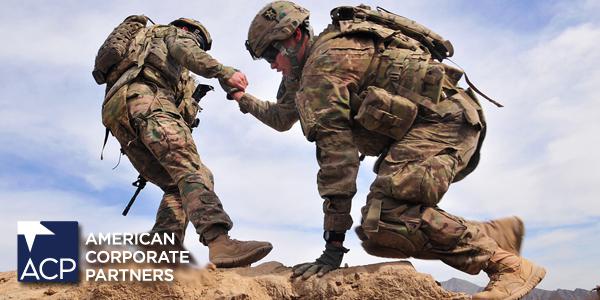Veterans Program Helps Fill Cyber Skills Gap
A common thread in the issue of U.S. cybersecurity today is the need for talent. Everyone—including industry and government—is struggling to keep up.
Timothy Cochrane and the team at American Corporate Partners (ACP) have developed a secret sauce to help combat the shortage of cybersecurity workers. And they have the stats to back it up.
Founded in 2008, ACP is a national nonprofit assisting post-9/11 veterans in their transition from the military to the civilian workforce. ACP focuses on mentoring, career counseling and professional networking.
Its free mentoring program connects veterans, or protégés, with corporate professionals, or mentors, for customized mentorships. The program is so successful that 98 percent of protégés would recommend it to a fellow veteran, and 97 percent of ACP’s corporate members would mentor another veteran. A staggering 99.9 percent of mentors are glad their companies participate in ACP.
“The magic to our program is our people,” says Cochrane, president of the ACP Citizens Program. “We have almost 40 staff members that oversee each and every one of these mentorships.”
These individuals personally pair every applicant, hand-picking a mentor for each protégé based on career compatibility, experience level, location and interests, he explains.
An ACP mentorship is a yearlong commitment. Mentors and protégés are encouraged to connect for monthly discussions to advance the veteran’s goal.
“What makes this so successful is the staff member is also having meaningful conversations with the mentor and protégé over the year, making sure they’re connecting and setting goals,” Cochrane adds. “We’re the Big Brothers Big Sisters to the military. The only difference is that your ‘little brother’ might be a 240-pound Marine.”
The average age of a veteran entering the program is 33. The ideal ACP mentor is 35 years or older, has eight or more years of professional experience and can devote at least an hour per month toward mentoring.
But ACP is open to anyone. “There are plenty of 25-year-olds out there, especially in some of these tech industries, that are as good a mentor as any 50-year-old in manufacturing,” Cochrane stresses.
In fact, almost two-thirds of the veterans coming to ACP now are asking for cyber matches. And these protégés are already well-equipped with the skills to succeed in the fields of cybersecurity, defense and intelligence.
“These are folks who have already worked on a team, in chaotic environments and understand how to complete tasks,” Cochrane says. “On top of that, the basic skill they’re trained for in the military is security and protection. Add the technical piece, given that our military is the most technical in the world, and you have a highly skilled, quality employee.”
Although ACP already works with more than 70 Fortune 500 companies, Cochrane sees real potential in partnering with smaller businesses.
“I see a lot of workforce issues with these smaller government contractors looking for quality people. And at the end of the day, I have all these veterans with certifications and special clearances who are looking for those career paths,” he says.
Building out the Citizens Program is the big focus for the organization this year. “Thousands of our veterans are looking to go into everything from HVAC [to] plumbing, construction, cyber, tech and even real estate,” Cochrane shares.
More than 70 percent of the service members coming to ACP are simply trying to figure out what their military expertise and education translates to in the public sector. “They understand their military background, but to be honest, are scared to death about getting a job,” Cochrane says.
The average salary in the U.S. is $44,000 for the first job for someone coming out of the military, Cochrane estimates. People coming out of the ACP program are making more than $80,000. “That’s the difference,” he emphasizes. “We’re the only program like this in the entire U.S.”
In February alone, 1,100 veterans signed up for the mentoring program. “Veterans are seeing the opportunity to have a mentor to help give them that direction towards meaningful employment versus just going out and getting a job,” Cochrane says. “This way, they don’t have to transition twice. Of the military men and women who got employment during their mentorship in 2015 and 2016, 82 percent were still in their jobs after a year.”
For more information, visit www.acp-usa.org or contact tcochrane@acp-usa.org.





Comments